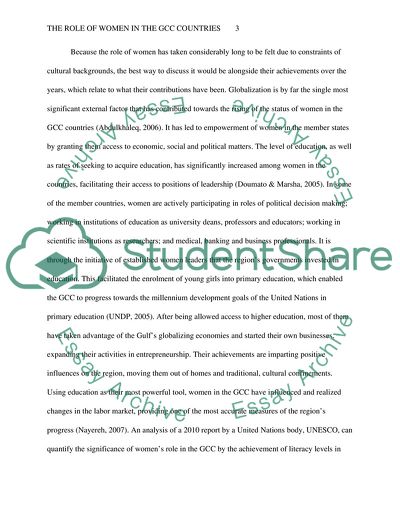Cite this document
(The Role of Women in the GCC Countries Essay Example | Topics and Well Written Essays - 2000 words - 1, n.d.)
The Role of Women in the GCC Countries Essay Example | Topics and Well Written Essays - 2000 words - 1. https://studentshare.org/sociology/1804795-the-role-of-women-in-the-gcc-countries
The Role of Women in the GCC Countries Essay Example | Topics and Well Written Essays - 2000 words - 1. https://studentshare.org/sociology/1804795-the-role-of-women-in-the-gcc-countries
(The Role of Women in the GCC Countries Essay Example | Topics and Well Written Essays - 2000 Words - 1)
The Role of Women in the GCC Countries Essay Example | Topics and Well Written Essays - 2000 Words - 1. https://studentshare.org/sociology/1804795-the-role-of-women-in-the-gcc-countries.
The Role of Women in the GCC Countries Essay Example | Topics and Well Written Essays - 2000 Words - 1. https://studentshare.org/sociology/1804795-the-role-of-women-in-the-gcc-countries.
“The Role of Women in the GCC Countries Essay Example | Topics and Well Written Essays - 2000 Words - 1”. https://studentshare.org/sociology/1804795-the-role-of-women-in-the-gcc-countries.


